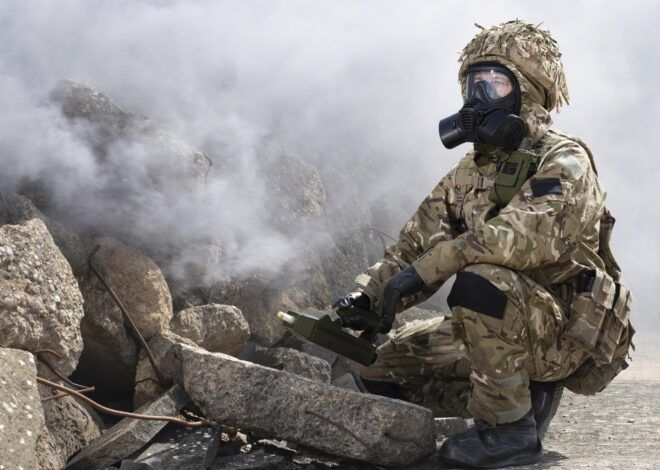
How To Survive Psychological Warfare
Welcome to the ultimate guide on how to survive psychological warfare. Are you prepared to armor yourself against unseen threats that target your mind and emotions? In a world where psychological warfare is increasingly prevalent, knowing how to navigate through this treacherous terrain is essential for safeguarding your mental well-being.
Join us as we delve into the realm of psychological warfare, uncovering its tactics, exploring its impacts, and equipping you with strategies to not just survive but thrive in the face of adversity. Let’s embark on this empowering journey together!
Understanding Psychological Warfare
Psychological warfare operates in the shadows, aiming to manipulate and control individuals through subtle yet potent means. It involves utilizing psychological tactics to undermine a person’s mental and emotional well-being, creating doubt, fear, and confusion. These tactics often target vulnerabilities and exploit them for strategic advantage.
By understanding the insidious nature of psychological warfare, we can better recognize when we are being subjected to its influence. Whether through misinformation campaigns, gaslighting techniques, or other forms of manipulation, perpetrators seek to destabilize their targets mentally and emotionally. Awareness is key in combating these covert attacks on our psyche.
In a world where perception shapes reality, being able to discern truth from deception is crucial. Psychological warfare thrives on obscuring facts and distorting perceptions to serve ulterior motives. By shedding light on these dark practices, we empower ourselves to resist their harmful effects and reclaim our autonomy.
Common Tactics Used in Psychological Warfare
Psychological warfare employs a range of tactics to manipulate and control the mind and behavior of individuals. One common tactic is gaslighting, where the perpetrator intentionally distorts reality to make the victim doubt their own perceptions and sanity. Gaslighting can lead to confusion, self-doubt, and increased dependency on the manipulator.
Another tactic often used is isolation, where the targeted individual is cut off from friends, family, or support networks. This isolation can create feelings of loneliness, helplessness, and vulnerability in the victim. Additionally, spreading misinformation or rumors about the target aims to damage their reputation and credibility.
Furthermore, constant surveillance or stalking can instill fear and paranoia in the victim. This invasion of privacy can leave them feeling exposed and violated. Manipulating emotions through guilt-tripping or emotional blackmail is another effective method used in psychological warfare tactics.
It’s crucial to recognize these common tactics in order to protect yourself from falling prey to such manipulation techniques.
Psychological Effects of Psychological Warfare
Psychological warfare can have devastating psychological effects on the targeted individual. The constant fear of being under attack can lead to heightened anxiety and paranoia, making it difficult for the person to trust their surroundings. This sense of distrust may result in social isolation as they struggle to differentiate between friend and foe.
Moreover, the manipulation tactics used in psychological warfare can erode a person’s self-confidence and belief in themselves. Gaslighting techniques may leave the individual questioning their own reality, leading to feelings of confusion and helplessness. The psychological impact of such tactics can be long-lasting, affecting not only the individual’s mental well-being but also their ability to function effectively in daily life.
The emotional toll of psychological warfare cannot be underestimated. Targeted individuals may experience depression, post-traumatic stress disorder (PTSD), or even suicidal thoughts as they grapple with the trauma inflicted upon them. It is crucial for those affected by psychological warfare to seek support and guidance to help navigate through these challenging times.
Strategies for Surviving & Coping with Psychological Warfare
In the face of psychological warfare, it’s crucial to have strategies in place to survive and cope with the tactics used against you. Maintaining a strong support system is key – surround yourself with friends, family, or a therapist who can provide emotional backing.
Practice self-care routines that promote mental well-being such as meditation, exercise, or engaging in hobbies you enjoy. These activities can help reduce stress and anxiety caused by psychological attacks.
Additionally, educating yourself about common tactics used in psychological warfare can help you recognize when they are being employed against you. This awareness empowers you to respond effectively and not fall victim to manipulation.
Setting boundaries with individuals who may be attempting to engage in psychological warfare is essential for protecting your mental health and overall well-being. Remember that prioritizing your own mental health is paramount when facing these challenging situations.
Seeking Help and Support
When facing psychological warfare, seeking help and support is crucial for maintaining your well-being. It’s important to reach out to trusted friends, family members, or mental health professionals who can provide guidance and a listening ear during difficult times.
Talking about your experiences with someone you trust can help you feel less isolated and more understood. Support groups or online forums can also be valuable resources for connecting with others who have gone through similar challenges.
Therapy or counseling sessions can offer tools and strategies to cope with the psychological effects of psychological warfare. A trained professional can assist you in developing healthy coping mechanisms and resilience against potential attacks.
Remember that seeking help is not a sign of weakness but a proactive step towards taking care of yourself. You deserve support and assistance in navigating the complexities of psychological warfare.
Preparing Yourself for Potential Attacks
Being aware of the possibility of facing psychological warfare is the first step in safeguarding yourself. Stay informed about common tactics used, such as gaslighting and manipulation. Educate yourself on how to recognize these strategies when they are being employed against you.
Building a strong support system can also help you weather potential attacks. Surround yourself with trustworthy individuals who can provide emotional backing during challenging times. Consider seeking professional help from therapists or counselors trained in dealing with psychological trauma.
Develop healthy coping mechanisms to manage stress and anxiety that may arise from being targeted. Engage in self-care activities like meditation, exercise, or hobbies that bring you joy and relaxation. Remember to prioritize your mental health above all else.
Stay vigilant and trust your instincts if you sense something amiss in your interactions with others. Trusting your gut feeling can often be a powerful tool in protecting yourself from harm. Keep communication channels open with loved ones so they can offer assistance if needed.
By taking proactive steps to prepare for potential attacks, you empower yourself to face adversity head-on with resilience and strength. Arm yourself with knowledge, support, and self-care practices to navigate through any challenges that may come your way.
Conclusion: Staying Strong and Resilient
As you navigate the challenging terrain of psychological warfare, remember that your mental and emotional well-being are paramount. By understanding common tactics used in these situations and recognizing the psychological effects they can have on you, you are better equipped to protect yourself.
Surviving and coping with psychological warfare requires resilience and strength. Seek help and support from trusted individuals or professionals who can provide guidance during difficult times. Remember, you are not alone in this battle.
Prepare yourself for potential attacks by practicing self-care, mindfulness, and stress management techniques. Stay vigilant but also allow yourself moments of peace and relaxation to rejuvenate your spirit.
In the face of psychological warfare, staying strong is a form of resistance. Embrace your inner resilience, rely on your support system, and never underestimate the power of self-care practices in safeguarding your well-being.
By staying strong and resilient in the face of psychological warfare, you empower yourself to overcome adversity with grace and courage. Your mental fortitude will be a shield against any attempts to destabilize your psyche. Stand tall, stay grounded, and believe in your ability to thrive despite challenges that may come your way.






